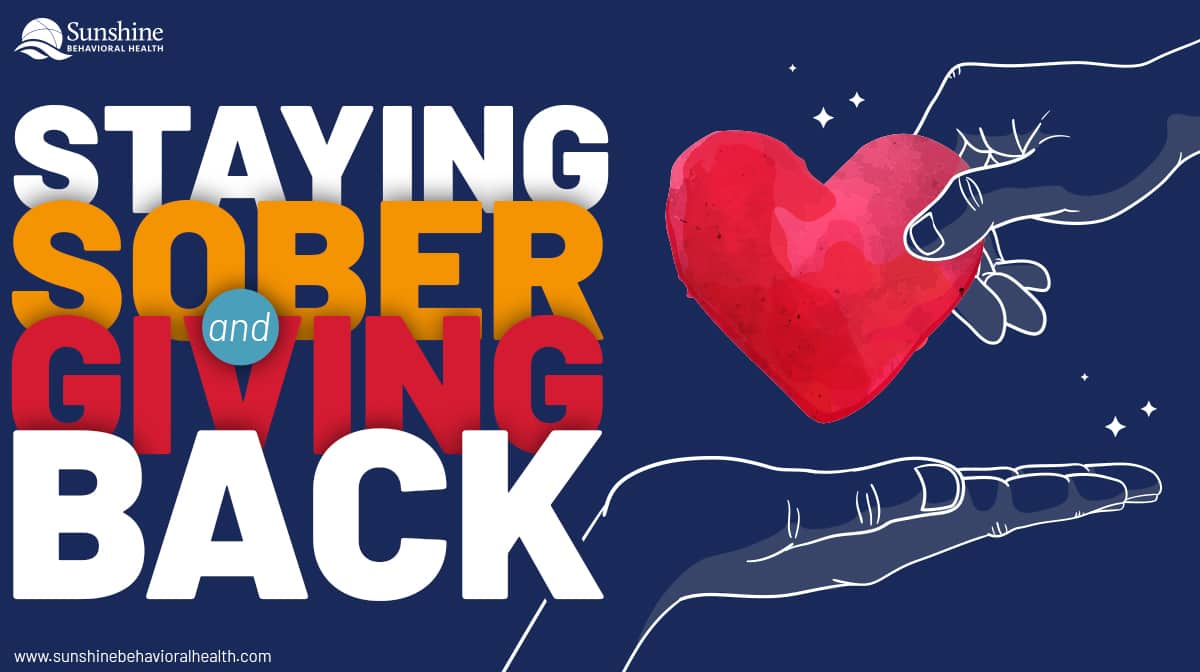
Staying Sober and Giving Back
“Having had a spiritual awakening as the result of these steps, we tried to carry this message to addicts, and to practice these principles in all our affairs.”
The above statement is the twelfth step of Narcotics Anonymous. It’s similar to the final step of Alcoholics Anonymous and other organizations.
It illustrates how assisting others and giving back can be an important part of recovering from drug or alcohol addiction and maintaining long-term sobriety.
How does giving back relate to sobriety?
Some sobriety programs encourage participants to sponsor or assist newer members. Other support group members might bolster their recovery by hosting meetings or taking active roles in their organizations.
These actions connect people to each other. Researchers have discovered that such connections can:
- Distract people from their problems.
- Prevent isolation.
- Reduce anxiety.
- Create a social network of like-minded sober people.
Such connections can contribute to sobriety.
What are some ways recovering people can give back?
By helping others, people in recovery might feel better about themselves. They might be less likely to turn to drugs or alcohol or other harmful coping mechanisms.
A few ways they can give back are:
- Contributing to their sobriety support groups.
- Volunteering in their communities and others.
- Participating in initiatives with their workplaces.
- Assisting family members and friends who are also working on their sobriety.
Giving Tuesday, the Tuesday after Thanksgiving, is a time to provide assistance, but sobriety assistance is a yearlong (and lifetime) endeavor. Helping others can ultimately help ourselves.
Sources
12step.org – 12 Steps of Narcotics Anonymous
sunshinebehavioralhealth.com – Sunshine Behavioral Health Alumni Group
greatergood.berkeley.edu – Can Helping Others Keep You Sober?
volunteermatch.org – VolunteerMatch
fastcompany.com – 5 Ways Volunteering With Your Coworkers Will Make You Happier (And Help Your Career)
A Message From Our CEO
Medical disclaimer:
Sunshine Behavioral Health strives to help people who are facing substance abuse, addiction, mental health disorders, or a combination of these conditions. It does this by providing compassionate care and evidence-based content that addresses health, treatment, and recovery.
Licensed medical professionals review material we publish on our site. The material is not a substitute for qualified medical diagnoses, treatment, or advice. It should not be used to replace the suggestions of your personal physician or other health care professionals.





